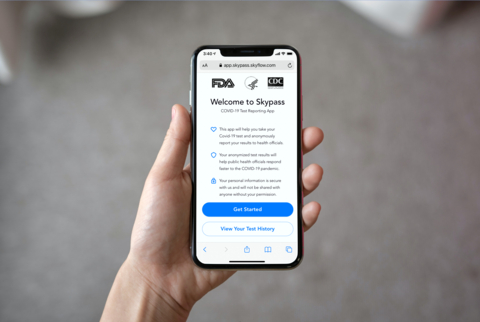Recent PRESS RELEASES
Skyflow Announces HIPAA Certification
Skyflow Delivers Data Security, Interoperability, and Compliance with Healthcare Data Privacy Vault

Skyflow today announced that its Healthcare Data Privacy Vault is now certified as compliant with the Health Insurance Portability and Accountability Act (HIPAA), the U.S. national standard for health information security and privacy.
Skyflow’s Healthcare Vault is specifically designed to securely handle patient health information (PHI) and personally identifiable information (PII), with a pre-built data schema, cloud functions, data sharing, and governance models ready for any healthcare application. When development teams choose the Skyflow API to build digital innovations for healthcare, they save the months they would typically spend grappling with foundational PHI and PII issues like HIPAA compliance, patient consent, data interoperability, data loss prevention, and more. They can put an app into the hands of patients and healthcare providers that much faster.
Skyflow radically simplifies how companies manage, access, and govern sensitive customer data. The zero-trust data vault with an elegant API allows developers to quickly build applications and workflows without worrying about data security, privacy, or compliance, while still allowing for data sharing required for collaboration.
Skyflow’s COVID-19 Solution
Skyflow’s new passport solutions for COVID-19 testing and vaccination tracking are also certified as HIPAA compliant. The solutions, built on Skyflow’s privacy-preserving vault technology, are designed to help re-open the global economy. Intended for private industry, government agencies, and any organization that needs a way to securely collect and share COVID test result and vaccination data, the solutions include a customizable mobile app aimed at patients, a secure data vault, and data sharing capabilities designed with patient privacy as a first principle.
Early versions of those solutions were winners of the recently concluded U.S. Department of Health and Human Services design-a-thon, where Skyflow’s approach was unique in its scalability and approach to privacy and patient consent, and stood out in a field focused on buzzwords like blockchain.
Skyflow’s approach to healthcare data privacy and security is driven by its team of experienced executives with backgrounds in healthcare data and scalable enterprise-grade data infrastructure.
- Skyflow’s co-founder and CTO Prakash Khot is a long-time healthcare industry expert and former chief technology officer of AthenaHealth, the #1 cloud EHR company with over 100 million patients’ data.
- Fawad Butt, a 20-year data governance veteran with previous roles as Chief Data Officer of UnitedHealthcare and Chief Data Governance Officer of Kaiser Permanente, has recently joined the team as advisor.
- Additionally, other Skyflow executives are former leaders from Salesforce and Oracle who have built and scaled data platforms to millions of users and billions of data points.
Build Fast and Don’t Break Privacy
“Swiftly deployed digital solutions must be part of any healthcare organization’s strategy. When crises like the COVID-19 pandemic strike, of course you need testing and vaccines, but you also need mobile and web applications to manage your response, to communicate with patients, and to coordinate prevention and care,” said Anshu Sharma, CEO and co-founder at Skyflow. “But healthcare development teams have always been slowed by the unique privacy challenges inherent to healthcare data, including HIPAA compliance. The Skyflow Healthcare Vault removes those challenges, enabling these teams to innovate at a fast pace.”
Skyflow’s Radical New Approach: Goes Beyond Compliance
Skyflow takes a different approach. Inspired by the data vaults built internally by companies like Apple, Google, and Netflix that spend tens of millions of dollars on privacy, Skyflow has built a zero-trust data vault that any company can use. At its core, the Skyflow data privacy vault is powered by a radical new approach called polymorphic encryption, which utilizes the latest industry-standard encryption and tokenization algorithms.
View source version on Business Wire.